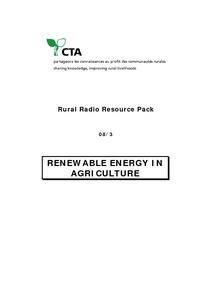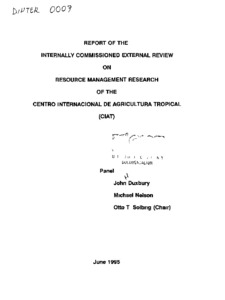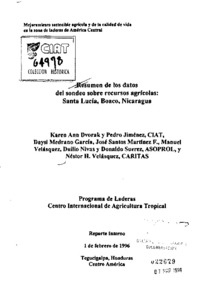Relevant policy questions related to property rights and resource management
The authors started the discussion with the fundamental question: why are property rights important? The central hypothesis of this collaborative venture is that inappropriate property rights institutions lead to resource degradation. Two cases were distinguished: single-user resources and multiple-use resources. A good example of a single-user resource is land. Absence of secure property rights will result in land degradation, as incentives to improve the resource base do not exist under such conditions.





